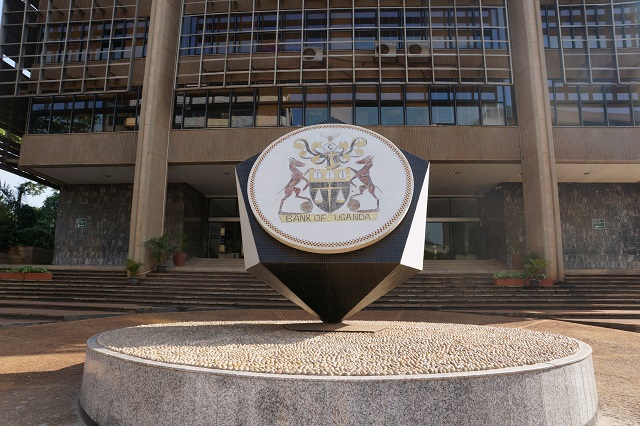
Kampala, Uganda | THE INDEPENDENT | The Bank of Uganda is due to launch new measures to enhance the security of online and mobile transactions as the financial technology industry grows.
The financial sector is enjoying much faster growth than in years prior to the last decade boosted by digital innovations, with, for example, the number of Bank accounts growing from less than seven million to 23 over the last seven years, according to Uganda Bankers Association, UBA.
Sarah Arapta, the UBA Chairperson says that this rapid increase was because of the partnerships between banking institutions and fintechs. However, this development came with new challenges in cyber security which are also continuously evolving.
Mackay Aomu, the Director of the National Payments System Department at the Bank of Uganda says that the Bank will soon implement the physical identification requirements for anyone withdrawing a minimum amount of money across the counter.
Speaking at the just-ended two-day Annual Bankers Conference, Aomu also said that they vet new staff in the industry and the errant ones are blacklisted, and this, he says will soon extend to all payment service providers.
He added that bank agents are also being issued with new guidelines which are based on the Data Protection Act to prevail on those that abet financial fraud. This, according to him will ensure that an agent who commits or abets a crime using one mobile money company will not be able to operate under another network.
The agents will be required to sign agreements so that should they fail in their duty to protect data and it leads to loss or fraud, they will also be blacklisted.
Telecommunications companies and the Uganda Communications Commission, UCC, have been running campaigns on all media platforms including mass media, to sensitise the public on how to detect attempted fraud.
These include campaigns dubbed “tonfera” and “beera steady”, which the regulators say have so far had an impact.
These acts by fraudsters include swapping SIM cards, using newly registered lines to commit fraud and calling unsuspecting account holders to lure them into surrendering their account security details.
Aumo says, however, that sometimes the loopholes in the system arise when the innovations are rushed and implemented without putting in place adequate security checks.
The conference was called to take stock of the Fintech contribution to the growth of the sector and also identify emerging issues mainly related to security.
Richard Yego, the MTN Mobile Money Managing Director urged for more collaboration amongst the industry players like fintechs, financial institutions, telecommunications companies and regulators to ensure smooth development of the fintech contribution to national development.
This was in response to a comment by Deputy Governor Michael Atingi-Ego that the industry should do what it takes to adapt to the changing needs and preferences of the public and deliver the services.
“What the public needs is not banks, but banking services,” he said in reference to the growing importance of digital banking relative to branches or banking halls. Yego said that collaboration would ensure that the solutions that matter to the public are delivered adequately and securely.
From a banking perspective, Herbert Olowo, Head of Operations and IT at Absa Uganda also noted the need to collaborate to drive innovation, adding that this would promote public trust and confidence in the formal financial sector.
According to him, traditionally, banks are more trusted than the newfound technology-based services and therefore, he says, a partnership would create the needed public confidence and trust.
Despite the new security challenges, digitisation of money movement has improved safety compared to physical cash payments, according to Yego.
“Further, this concept drew the foundation for PDM, (the Parish Development Model), cut out the middleman and eliminated risk ensuring funds reached the parish direct and were then distributed into the community.
On the importance of fintechs, the Fitspa (Financial Technology Service Providers Association Chairperson, Josephine Olok said fintechs were doing a complementary role in the financial deepening and inclusion drive, reaching where banks could not reach. For this, there is a need for the regulators to put more focus on their regulation to ensure they perform this role better, according to Olok.
*****
URN
 The Independent Uganda: You get the Truth we Pay the Price
The Independent Uganda: You get the Truth we Pay the Price



